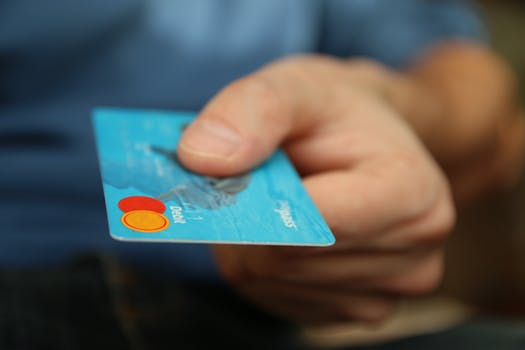Most people often come to the conclusion that the only reason to consult legit credit repair services is to avoid being cheated. This is true; however, this is just one of the numerous reasons why it is advisable for you to use only a legit credit repair service.
Credit repair is not something everyone can handle; this is exactly why you should always leave it to a trusted professional to help if you don’t know what you are doing.
There are so many advantages of dealing with legit credit repair professionals and I’ve outlined some of the reasons below for you, check it out:
Advantages of Dealing With Legit Credit Repair Services And Professionals
- For starters, you will get a clear idea why your credit report contains negative items. This will key you in on why your credit score is taking such a huge hit. This is because every credit repair professional, (if they’re really good), will end up providing quality education to you.
By simply listening to their advice, and by understanding the thought process of legit credit repair professionals, you can learn a lot about what it actually takes to see a boost in your credit score. But it gets a little bit deeper here. Let’s take a look at what you should be expecting from a legit repair service.
How seamless is the assistance that you’re receiving?
In other words, are you hiring a repair service that is asking you to do most of the heavy lifting here? Don’t get me wrong, even when working with a professional, you should be adamant about learning the ropes yourself so that you can prevent future issues surrounding your credit report. But at the same time, you don’t want to pay someone for help, only to find out that their having you do what you’ve paid them to do.
Personal story:
When I first embarked on the journey of cleaning up my credit report, my credit was soo bad, they wouldn’t even take my cash in most cases LOL. When I had decided to take control over my situation, I began seeking out credit repair companies to help me out. But what I found was that there are a lot of companies out there that are out not to help you, but simply to help themselves. I
I remember joining one credit repair service, and my first appointment with a rep consisted of her telling me that I had to get copies of my credit report and mail it off to them to review. What? I remember saying to myself, “Aren’t I paying you to do that?”
Not to mention that they wanted to charge me an arm and a leg for their help. Now don’t get me wrong here. If the service is quality, and high quality at that, I don’t mind paying for it. But it has to work, and you can ask me to do the work that you should be doing. Makes sense right?
As you can guess, here, I quickly quit that service and decided to go on a learning journey. I was lucky enough to find an amazing guide that schooled me the different components involved in credit repair, and I simply studied it.
The more I studied, the more knowledgeable I became. And the more I began to see my score slowly begin to rise. But then I hit some roadblocks on my credit report that I couldn’t fix myself, and need some help from some of the big boys in this industry.
What I did:
Since I had gotten so much valuable help for free from this credit repair service, I decided to give their repair team a try and see what happens. Now keep in mind, that my credit report had over 40 negative items on it that were staring me in the face, just daring me to touch them.
But the service team was able to get over half of those removed. The best part was, it was on complete autopilot. I didn’t have to mail them any credit reports. And they were fairly priced, way cheaper than the other company I had gone to in the beginning.
My score eventually went up by 133 points in a few months. And I knew I had the correct team helping me out. The point I’m trying to make here is that you can do this by yourself if you have the right knowledge, but you can also get help from people who have your best interest in mind. If you’re a bit of a hybrid like me, then you’ll do a little of both! What matters here is that you get your score to where it needs to be.
- Secondly, legit credit repair standards will always remain the same no matter how drastically the economy changes. For example, a person who runs away from credit card debt is not going to be respected by lenders. On the other hand, a person who relies on credit card excessively will also not be respected. You will have to strike a balance. and adopt a holistic approach to this.
Another important note on this:
Merely having a legit credit repair service is not going to work if you do not bring your expenses under control. In fact, you can actually be hurting your credit while your credit team is trying to repair it. Eye-opening I know, but its also very true.
The way you spend is totally in your control, not your credit repair specialists’ This is the part you have to play in the health of your credit score. Always make sure you get counsel from your repair team before making purchases on credit, or decisions that you think may harm your credit.
These are small points that go a long way in boosting your credit score. Dealing with legit credit repair professionals will help you identify these points very quickly. They will also provide you with solid, professional counsel so that you make smart financial moves while they’re assisting you. One of the things my credit repair team told me when they were working on my credit report was, “Make sure not have your credit ran for loans of any kind while were assisting you”.
This was so good to know because in my ignorance I would’ve been undoing their support. There’s no sense in having a repair teamwork to build your credit if you’re simultaneously tearing it down by making decisions that will lower your score.
- Additionally, you will get good value for money when you deal with legit credit repair professionals. A professional normally charges money based on his or her performance. If you want to enjoy maximum benefits, you should deal with a professional who will charge money based on results. Also, when seeking help, always remember that you are protected by the Credit Repair Organizations Act.
This is a small step, but it is a great way of boosting your confidence and enjoying the results. You will enjoy none of this if you deal with fraudulent service providers.
The process:
The process to erase bad credit can be time-consuming. If you are working within a certain time frame and need a faster process, options are available – hiring a legit credit repair service tops the list. It is also important to note that not all credit repair services are created equal when it comes to what is proprietary. What I mean by this is that there are universal principles to credit repair that can be accessed by anyone searching for the right information, and there are strategies to credit repair that are only used by certain agencies.
These strategies are all connected to loopholes in the law. The more your credit repair agency understands loopholes in law pertaining to the credit bureaus, collection agencies etc., the more they can work to get items removed from your report that are in violation of these laws.
The vast items on your credit report:
Did you know that your Equifax report is the longest of the three credit bureaus? In addition, between Experian, Trans Union, and Equifax, there are over 30 different factors that can determine whether your score rises or falls. Folks, this goes way beyond simply paying off collection agencies.
If just any one of these 30 items contains an error, it can affect your credit score. A seasoned credit repair service understands the loopholes associated with each of these items and can use the law to legally get these removed from your credit report.
Whether you’re an individual or you manage a business, increasing your credit score is one very important thing you need to do. However, you should not let just anyone handle this; you should hire a legit credit repair service to get the best results. If you would like to get professional assistance with increasing your credit scores, this is best out there by far.
If you need more information on how to strengthen your credit score, below is a free guide that will walk you through the process step by step and will also cover:
- Getting and Understanding your credit reports & scores
- Real “how-to” for improving your credit (these are the very tactics the best credit repair firms in the country use)
- Powerful action plans
To Better Credit!































